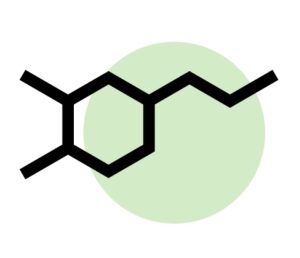Dopamine is a word that often comes up in conversations about brain function, motivation, and even pleasure. But what exactly is dopamine, and why is it so important? In this blog post, we’ll delve into the science of dopamine, exploring its role in the brain, how it influences our behavior, and why it’s sometimes referred to as the “motivation molecule.”
What is Dopamine?
Dopamine is a neurotransmitter, a type of chemical messenger that transmits signals between neurons (nerve cells) in the brain. It plays several critical roles in the central nervous system, influencing a variety of functions, including movement, mood, and reward.
The Role of Dopamine in the Brain
- Reward and Pleasure:
- Dopamine is perhaps best known for its role in the brain’s reward system. When you experience something pleasurable, such as eating your favorite food or engaging in a fun activity, dopamine is released, creating a feeling of enjoyment and reinforcing the behavior. This mechanism helps ensure that we repeat behaviors that are essential for survival, such as eating and reproducing.
- Motivation and Goal-Directed Behavior:
- Beyond pleasure, dopamine is crucial for motivation. It helps drive our behavior towards goals and rewards. When you set a goal, dopamine levels rise, encouraging you to take actions to achieve it. This makes dopamine a key player in persistence and perseverance.
- Movement:
- Dopamine is also essential for coordinating smooth and controlled movements. It is produced in several areas of the brain, including the substantia nigra, where it plays a vital role in regulating movement. This is why Parkinson’s disease, a disorder characterized by tremors and rigidity, is associated with the degeneration of dopamine-producing neurons.
- Learning and Memory:
- Dopamine influences learning and memory by affecting how we process and retain information. It helps reinforce learning by rewarding behaviors and actions that are beneficial, thus making them more likely to be remembered and repeated.
Dopamine and Behavior
The effects of dopamine on behavior can be profound. For instance, a surge in dopamine can lead to feelings of euphoria and increased motivation, which is why activities that stimulate dopamine release, such as exercise, social interactions, and even certain foods, can be so rewarding. However, this also means that dopamine can play a role in addictive behaviors. Substances like drugs and alcohol can artificially elevate dopamine levels, leading to a cycle of addiction as the brain craves the intense pleasure associated with these substances.
Dopamine Imbalance and Disorders
An imbalance in dopamine levels can lead to various neurological and psychiatric disorders. Low levels of dopamine are linked to conditions such as Parkinson’s disease and depression, where motivation and pleasure are significantly diminished. On the other hand, excessive dopamine activity is associated with conditions like schizophrenia, where too much dopamine in certain brain areas can lead to symptoms like hallucinations and delusions.
Boosting Dopamine Naturally
Maintaining healthy dopamine levels is crucial for overall well-being. Here are some natural ways to boost dopamine:
- Diet:
- Consume foods rich in tyrosine, an amino acid that is a precursor to dopamine. Foods like almonds, bananas, avocados, eggs, and chicken are excellent sources.
- Exercise:
- Regular physical activity increases dopamine levels, enhancing mood and motivation.
- Sleep:
- Adequate sleep is essential for maintaining optimal dopamine levels. Poor sleep can reduce dopamine receptors in the brain.
- Mindfulness and Meditation:
- Practices like meditation can increase dopamine production, promoting a sense of well-being and focus.
- Healthy Social Interactions:
- Positive social interactions can boost dopamine levels, reinforcing social bonds and enhancing mood.
Conclusion
Dopamine is a fascinating and complex neurotransmitter that plays a critical role in how we experience pleasure, motivation, and movement. Understanding how it works can help us make better choices to maintain our mental and physical health. By adopting a healthy lifestyle and being mindful of activities that promote dopamine production, we can harness the power of this “motivation molecule” to improve our overall well-being.
In our fast-paced world, where instant gratification is often just a click away, it’s important to remember the natural and sustainable ways to keep our dopamine levels balanced. So, next time you feel that rush of happiness after a workout or a rewarding experience, you’ll know that dopamine is working its magic, keeping you motivated and engaged in life.
